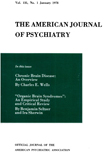THE PSYCHOANALYTICAL APPROACH TO THE MASCULINE AND FEMININE PRINCIPLES IN MUSIC
Abstract
Mother-complex, shown by lifelong dependency on women or effeminate men, culminating in an attachment to a masculine woman. Feminine tendencies also shown in the enjoyment of soft luxurious life, love of clothes, moodiness, sentimentality, over-subjective attitude, lack of robustness in both physique and creative work.
Mother-complex, shown in dependency first on his mother, then transferred first to many women throughout his life and finally to the Church, where the father confessor takes up the mother role. Narcissism shows by his concentration on the effect of his own personality on those around him and his love of all that was showy and ornamental for its own sake.
Independence, stability, power and vigour, self-assurance and a voluntary assuming of responsibility and protection towards those about him, a long and happy marriage, pelus a lifetime spent in the glorification of form, add up to an outstandingly mature and masculine personality.
A deeply introverted personality, unable to adjust to the outside world, showing evidence of a persecution complex, probably brought about by his deafness. His life, while undoubtedly neurotic, shows no sign of an over-stressed Anima, nor is there evidence of neurotic femininity in his music. Feminine passages in his scores, are the warm, balanced demonstrations found in a man in whom the masculine principle predominates.
Access content
To read the fulltext, please use one of the options below to sign in or purchase access.- Personal login
- Institutional Login
- Sign in via OpenAthens
- Register for access
-
Please login/register if you wish to pair your device and check access availability.
Not a subscriber?
PsychiatryOnline subscription options offer access to the DSM-5 library, books, journals, CME, and patient resources. This all-in-one virtual library provides psychiatrists and mental health professionals with key resources for diagnosis, treatment, research, and professional development.
Need more help? PsychiatryOnline Customer Service may be reached by emailing [email protected] or by calling 800-368-5777 (in the U.S.) or 703-907-7322 (outside the U.S.).



